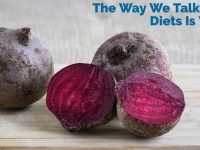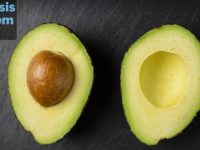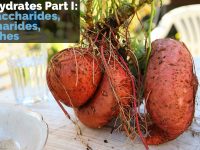Tom and I finished recording an episode on weight loss recently. For many, weight loss is a sensitive topic, and while we try to approach the topic from a scientific “these are the facts” point of view, by necessity we also wade into more tangled areas of motivations, body image, and dietary control.
We finished our show with a brief discussion of disordered eating, and also put ourselves out there as resources for anyone struggling with their relationship with food who would like someone to talk to. I can be contacted via this page, and you can find Tom’s contact information on his site usefulcoach.
I spend a lot of time—on my site, on the podcast, and with my clients—discussing the science of nutrition or providing performance-oriented advice. I don’t talk a lot about diet or attitudes about diet. We should be talking about these topics, though, so in this article I’m going to flesh out a concept Tom and I mentioned: the goal of any dietary change should include improving one’s relationship with food.
The Many Forms Disordered Eating
Most of us are aware of eating disorders like anorexia nervosa and bulimia nervosa. These are clear forms of disordered eating, and any healthy person could look at the patterns associated with these disorders and understand how mentally and physically unhealthy they are. They are also recognized disorders by the American Psychiatric Association, so they are diagnosable.
An eating disorder is not a prerequisite for a disordered pattern of eating, though—it’s the other way around. In other words, there are far more people who have disordered patterns of eating (but who fall short of the diagnostic spectrum for an eating disorder) than there are people with a diagnosed eating disorder.
Disordered eating, regardless of the form, revolves around an unhealthy relationship with food that often extends (but not always) to body image. Individuals with disordered eating patterns are often preoccupied by food, and may…
- Have strict routines involving food.
- Feel guilt about food choices.
- Use various methods as “penance” (e.g., exercise, skipping meals, restricting calories, etc.) for choices about which they feel guilty.
- Feel anxious when food choices are out of their control.
While not strictly “diet”, it should be noted that the flip side of the coin is attitude about exercise, and all of the above can just as easily be applied to exercise. For many individuals with disordered eating, disordered exercise is also common, and it should go without saying that it’s also unhealthy.
Fear-Motivated Food Avoidance
The criteria above are commonly accepted signs of a disordered diet, but I’d like to bring up another, less-appreciated sign: fear-motivated food avoidance. That is, avoiding certain foods not because they’ve caused you demonstrable harm in the past, but because you’re worried about insidious effects that may or may not affect you now or in the future.
You may have heard the term “orthorexia”—literally, “correct appetite”. Orthorexia isn’t a formally recognized eating disorder, but it does warrant its own page on the National Eating Disorders Association website, which includes another list of warning signs and symptoms.
What constitutes orthorexia is tricky; the line that divides “orthorexia” from “not orthorexia” is blurry, which is a big reason why it’s not formally recognized. Sometimes, fear and avoidance is an appropriate response, but parsing authenticity is difficult if not outright impossible.
For example, a person with a nut allergy would have good reason to avoid—even fear—nuts in their food, and no one can blame them for being extra cautious when eating. The same goes for someone with celiac and gluten-containing products. But what about a person who has self-diagnosed gluten intolerance? Statistically, it’s unlikely to be a true intolerance, but that doesn’t mean it’s definitely not there; it could be authentic, but we have no real way to confirm it.
We also can’t say it’s definitely real, though; unlike diagnosable food allergies and related disorders, we don’t have the diagnostic tools to find an objective truth. Even if the person experiences symptoms after consuming gluten, the nocebo effect is more than enough to explain their symptoms. In fact, nocebo-born symptoms are the reason why double-blind food challenges are the preferred method of oral food allergy diagnosis—but self-diagnosed food issues are never blinded, so the role of our expectations is huge.
What we can say is that as more foods or food groups are cut out, the likelihood of orthorexia increases. This is especially true when food groups are varied in nature (e.g., grains) or scientifically benign (e.g., sugars, nightshades)—that is, there’s zero scientific evidence they can cause the harms attributed to them.
We can also say that proselytizing about the dangers of a food are also strong indicators of orthorexia as it demonstrates a mental rigidity towards the healthfulness of an ingredient. People with nut allergies typically don’t tell their friends and family that they should also avoid nuts, but this behavior is common with gluten, grains, legumes, sugar, non-organic food, etc.
Despite not always resembling the abject illness of anorexia or bulimia or the disordered eating patterns that can lead to them, orthorexia is still unhealthy mentally and physically. Dietary diversity is an easy way to ensure a nutritionally complete diet, and cutting out large swaths of healthy foods because of a perceived lack of healthfulness or threat of harm can decrease the nutritional value of that diet.
The Problem with Many Fad Diets
Any dietary change should improve one’s relationship with food. The problem with many fad diets, though, is that they actively harm that relationship, even if they otherwise improve your dietary quality.
Consider a diet like Whole30. Some of its advice is reasonable, even good, like when it says “a pancake is still a pancake, even if it’s made with coconut flour.” It wants you to be aware that junk food remains junky regardless of the exact ingredients used, which is good for people to know so they don’t buy gluten-free brownies under the belief they’re somehow healthier.
But then there’s a whole slew of terrible advice in which you are advised to completely avoid grains, legumes, dairy, alcohol, sugar, carrageenan, MSG, and sulfites. It’s basically a primer for teaching yourself food fear, because it takes the attitude that your weight loss problems or health problems are because of totally normal foods you’re eating (which, for the record, have zero scientific evidence that they cause any of the problems Whole30 says they do).
Do people lose weight and feel better on Whole30? Of course. It’s not because of the food restrictions, though, and those same restrictions actively harm your relationship with food. When your old problems resurface, you blame yourself and perhaps go even deeper and restrict even more.
It’s not just Whole30, though Whole30 is really a prime example. Many fad diets (of today, yesterday, and tomorrow) include scientifically unadvised restrictions and promote food fears. This is a huge issue and for many it can lead to years of disordered eating patterns.
It’s also not just fad diets. Arguably, instilling food fears is a major strategy of the “natural foods” movement in general. Organic food is often touted as “safer”, and lists like the “clean 15” and “dirty 30” use misconstrued scientific data to legitimize food fear. In reality, no scientific evidence suggests the amount of pesticides we consume in conjunction with produce—even from the “dirty 30”—is dangerous. If you’re curious, the website safefruitsandveggies.com has a calculator that uses field data collected by the USDA to show you how many servings of different fruits or vegetables you’d have to consume before reaching the safety tolerances set by the USDA—spoiler, it’s usually in the thousands.
Regardless of who’s sowing the fear, the result is the same. Nobody should ever feel guilty, unhealthy, or impure when they eat food. We can recognize that some foods are more and less nutritious and we can strive to organize our diet more around nutritious foods while mostly avoiding less-nutritious foods, but you should be able to eat that slice of cake of unknown origin served at your friend’s birthday party without feeling bad.
Is There a Better Way?
There’s a movement gaining some traction that I think holds promise. It’s actually been around for over 20 years, but I only really started seeing it pop up in the news in the last few years. The movement is called “intuitive eating”.
The name is pretty self-explanatory, but the gist of the “diet” (it’s sometimes called the “anti-diet” or “non-diet”) is that you should let go of all the external motivators of your diet—notably food fears, but also societal pressure, food culture, etc.—and use your own internal signals to determine what to eat, free from any judgment. You eat what you feel like eating in whatever amount feels appropriate. The key, of course, is that you’re not really giving yourself carte blanche, but instead trying to listen to your body; in other words, while you do give yourself permission to eat whatever you want, you’re also actively trying to be more aware of yourself and how you feel.
Intuitive eating isn’t really a diet, and it’s not supposed to help you lose weight or even maintain weight. What it’s supposed to do is help you regain a healthy relationship with your diet, which is of incredible importance.
Think of it this way:
Everyone is born knowing intuitively how to eat. Babies don’t have to be told when to stop nursing during a meal, they stop when they’re satisfied. Worldwide, most adults are also good at intuitive eating; provided they have access to nutritious food, most adults maintain weight and never develop any deficiencies.
(On the topic of babies and children, some research suggests that the loss of intuitive eating begins early, perhaps as early as forcing a baby to “finish the bottle”, and that children self-regulate intake very well when allowed to eat the amount they want. There are caveats, of course: parents still need to encourage healthy eating patterns, such as avoiding grazing, and the rest of our culture [in America, at least] still encourages poor eating habits through food advertisements, social norms, and more. But at the very least, parents do have some early control over helping their kid maintain their intuition by being more “hands-off” when it comes to food intake and food choice.)
In other words, healthy relationships with food—a relationship we’re all born with and that worldwide is commonly kept—tend towards nutritional sufficiency and weight maintenance. Weight gain is associated with disordered eating patterns, and it’s challenging to lose weight or maintain that weight loss without first improving your relationship with food; long-term health and happiness depend more on you improving your attitude towards food than changing your diet.
This is really why I drill so hard on the necessity and importance of habit change when trying to lose weight: any long-term improvement isn’t the result of short-term changes, but long-held ones. So whether you focus entirely on improving your attitude (and ultimately habits) towards food or mingle caloric deficits with habit change, you can’t ignore the role of your own mentality towards food, exercise, and everything else that goes into changing your body.
Healthy Diets Begin with Healthy Attitudes
Losing weight is hard, but I can’t help but wonder how much of that is because most people set out to lose weight without first improving their attitude towards food; like anything in life, you can’t really expect to magically improve without changing what was holding you back in the first place. If you’re a poor student, changing majors won’t improve your grades unless you also change your study habits. If you’re a bad friend, getting new friends won’t change how your friendship goes unless you also change your relationship habits.
It can be hard to focus on something as intangible as attitude when it doesn’t have the same short-term results as dieting, but it’s also 100% necessary for long-term success—and also for long-term happiness. Keep this in mind anytime you’re changing your diet: not only should your diet improve, your relationship towards food should improve as well.















Awesome article! Thanks so much!
How do you feel about taking supplements to boost my workouts and sexual performance? I was thinking of taking Cedar Bear’s libido support for men to spice up my life since my T-levels have started to decrease.
I haven’t seen any support for supplements claiming to boost testosterone. There is a boost to testosterone just from working out, of course, so improving your workouts could hypothetically increase levels if you can work out longer, harder, or more often, but now we’re just talking about ergogenic aids (and dietary practice) in general, not supplements meant to modify hormones. If a supplement specifically boasts about increasing testosterone, it’s a fabrication or an exaggeration, and I would steer clear!
Do you think supplements are an effective way of staying healthy when you are low in testosterone? I wanted to check out the remedies on supplement reviews online but wanted a reputable opinion on the matter.
There aren’t any supplements that I know of that can truly address low testosterone, so I wouldn’t recommend any supplement that claims to boost the hormone.